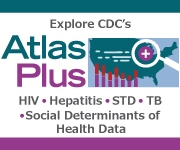Reported Tuberculosis in the United States, 2020
‹View Table of Contents
Genotype Clusters

Clusters of TB cases with matching genotypes are an indication of possible recent TB transmission.
- In this report, a TB case is clustered if it had a matching genotype with one or more other cases in the same county or county-equivalent area during the 3-year period of 2018–2020.
The number of reported TB cases that were genotyped declined from 6,966 in 2019 to 5,551 in 2020, a 20.3% reduction mirroring overall case count declines. However, similar to previous years, 97.5% of culture positive cases were associated with a genotype in 2020 (TB Genotyping Surveillance Coverage: United States 2004–2020).
During 2018–2020, 19.0% of TB cases were clustered.
- The highest percentages of genotype-clustered cases continue to be observed among American Indian or Alaska Native persons (53.4%) and Native Hawaiian or Other Pacific Islander persons (51.4%) (Characteristics of TB Cases in GENType Clusters by Alert Levels: 2018–2020).
- Hispanic or Latino persons (n=1,230) and non-Hispanic Black or African American persons (n=958) represented the highest number of clustered cases.
The number of county-based clusters declined from 1,351 in last year’s report (cases reported nationally during 2017–2019) to 1,280 clusters for 2018–2020, a 5.3% reduction.
Genotype clusters are additionally characterized into an alert level of non-alert, medium alert, or high alert based on a log-likelihood ratio calculation. Alert levels represent the degree of spatial concentration of cases within the same county or county-equivalent area as compared with the concentration of the genotype in the nation.
- For 2018–2020, 38.5% of clustered cases were included in clusters that were classified as either medium or high alert, which are reviewed for possible programmatic follow-up (Characteristics of TB Cases in GENType Clusters by Alert Levels: 2018–2020).
Learn more in the Executive Commentary.
- TB Genotyping Surveillance Coverage: United States, 2004–2020
- TB Genotyping Surveillance Coverage: U.S.-Affiliated Areas, 2004–2020
- Mycobacterium bovis by Origin of Birth: 2004–2020
- Characteristics of TB Cases in GENType Clusters, by Alert Levels: 2018–2020
- TB Clusters by Size: 2018–2020
- Most Frequently Reported GENTypes: U.S., 2018–2020
- Most Frequently Reported GENTypes: U.S.-Affiliated Areas, 2018–2020
- TB Genotyping Surveillance Coverage: Reporting Areas, 2020

